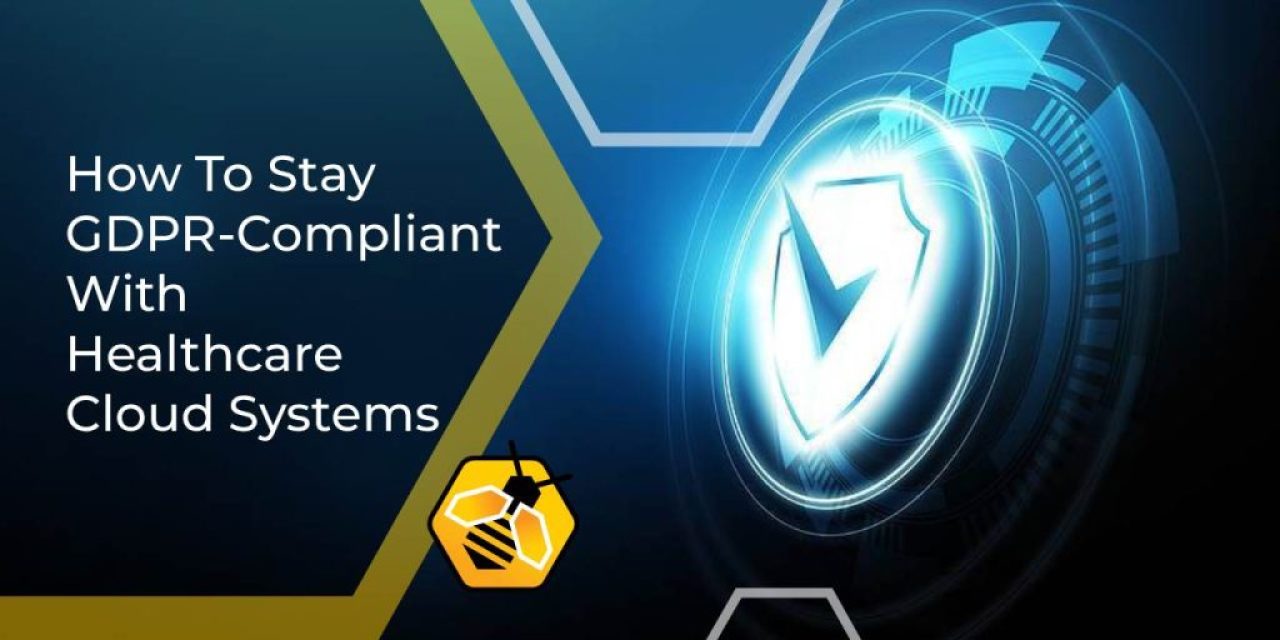How To Stay GDPR-Compliant With Healthcare Cloud Systems
Advances in data and technology are helping the healthcare sector to work more efficiently and improve services and treatment. Digital transformation results in more accurate recordkeeping and better communication between healthcare professionals and patients. This ultimately means faster diagnosis and higher quality treatment than ever before.
Many of these new services and innovations are cloud-based, which introduces efficiencies but also brings some fresh challenges. Healthcare providers can’t simply open a cloud subscription and start uploading files: quite rightly, the handling of patient data is regulated by stringent compliance requirements.
If the data is lost, accessed by an unauthorised party, or otherwise mishandled, the consequences can be severe: hefty fines, legal action, reputational damage, and harm to patient trust. This is why GDPR compliance with strong IT support is a non-negotiable requirement when using any cloud solution in healthcare.
Why GDPR matters in healthcare cloud use
The General Data Protection Regulation (GDPR) sets the rules for how personal data is collected, stored, processed, and shared. In the UK, GDPR is enshrined in law alongside the Data Protection Act 2018, and healthcare organisations must adhere to it when handling patient information.
GDPR is particularly strict when it comes to special category data, which includes health records, medical histories, and any data revealing a person’s physical or mental health. The rules demand higher levels of security, transparency, and accountability.
When using cloud solutions, healthcare providers remain the data controller, even if they outsource storage or processing to a cloud vendor. That means the legal responsibility for GDPR compliance never leaves the healthcare organisation, even if a third-party service makes a mistake.
Key risks of non-compliance
Failing to follow GDPR when using cloud solutions can result in:
- Fines of up to £17.5 million or 4% of annual turnover — whichever is higher.
- Loss of patient trust and reputational damage.
- Legal claims from patients whose data was mishandled.
- Operational disruption if systems are taken offline during an investigation.
Given the serious nature of these risks, cloud adoption in healthcare must be approached with a compliance-first mindset.
Best practices for GDPR-compliant cloud adoption
Choose the right cloud provider
Not all cloud platforms are created equal. When handling healthcare data, it’s essential to work with vendors who can demonstrate GDPR compliance and provide evidence of robust security measures. Look for providers with:
- UK or EU-based data centres.
- ISO 27001 certification (information security management).
- Transparent data processing agreements.
Microsoft 365, for example, offers GDPR-aligned data protection features and UK-based storage options, making it a popular choice for healthcare organisations.
Use strong access controls
GDPR requires that only authorised personnel can access patient data. In the cloud, this means:
- Multi-Factor Authentication for all accounts.
- Role-based access so staff only see the data they need.
- Immediate revocation of access when an employee leaves.
A Managed Service Provider (MSP) can set up and monitor these controls to ensure they remain airtight.
Encrypt data in transit and at rest
Encryption scrambles data so it’s unreadable without the right key. Under GDPR, encryption is a key safeguard, particularly for sensitive health information. Ensure your cloud provider:
- Encrypts data while it’s stored (“at rest”).
- Encrypts data when it’s sent over the internet (“in transit”).
- Uses industry-standard encryption methods.
Maintain clear data processing agreements
GDPR demands that data controllers (i.e. healthcare providers) have a written Data Processing Agreement (DPA) with each cloud vendor they use. This should set out:
- How the data will be used.
- Where it will be stored.
- What security measures are in place.
- How breaches will be reported.
Without a solid DPA, you could be held liable for your provider’s mistakes.
Regularly audit and monitor cloud systems
GDPR compliance isn’t a one-time task: it’s ongoing. Regular audits will:
- Identify unauthorised access attempts.
- Check that access permissions are still valid.
- Verify that security settings haven’t been weakened.
Tools like Sophos Cloud Security can provide continuous monitoring and automated alerts.
Have a breach response plan
If a data breach does occur, GDPR requires you to report it to the Information Commissioner’s Office within 72 hours. A good breach plan should:
- Define clear roles and responsibilities.
- Include communication templates for staff and patients.
- Outline immediate containment and investigation steps.
The role of a managed service provider
Partnering with a healthcare-aware MSP can remove much of the stress around GDPR compliance. They can configure and deploy the most effective software, conduct security audits, and provide timely and well-informed support.
This proactive approach keeps your cloud environment secure, compliant, and running smoothly.




